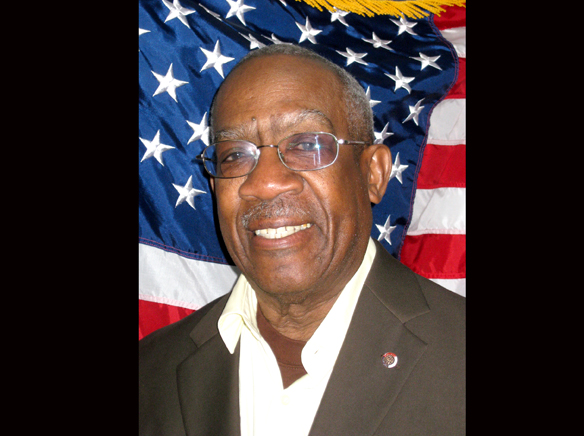E-5, P-1 Matthew Mitchell might have just set the record for the fastest military recruitment job ever. The Port Arthur, Texas native had just left his local recruiting office after enlisting and stopped at the post office on his way home.
“I ran into a friend of mine there and when he asked me what I was up to, I told him that I had just joined the Navy, and that maybe he should to,” Mitchell says.
E-5, P-1 Matthew Mitchell might have just set the record for the fastest military recruitment job ever. The Port Arthur, Texas native had just left his local recruiting office after enlisting and stopped at the post office on his way home.
“I ran into a friend of mine there and when he asked me what I was up to, I told him that I had just joined the Navy, and that maybe he should to,” Mitchell says.
Texas in 1958 promised little in the way of jobs or opportunity, especially for an African-American, and so Mitchell’s friend felt the same motivation as they turned around and headed back to the same recruiting station. The two men swore in, and were soon on their way to California and to the Navel Training Center in San Diego.
Normally, military basic training is considered one of the toughest things for a young man to endure, but not for Mitchell.
“I played football in high school in Texas,” Mitchell recalls. “And let me tell you, when you practice football in Texas in the summertime, boot camp in California is a piece of cake!”
The ease at which Mitchell breezed through the program must have caught the eye of his drill instructors, because he was soon promoted to RCPO, or Recruitment Chief Petty Officer. Essentially, he was now in charge of his fellow recruits.
“It meant that instead of the DI’s doing all the yelling, I was doing it for them – and there was plenty to do,” Mitchell says.
Inspections for personal hygiene could make or break a platoon, and Mitchell had to make sure all of the men in his platoon passed muster – or they would all pay dearly.
“I carried a razor with me at all times, because some of the guys didn’t want to shave.” He laughs, “But believe me; they got shaved one way or another.”
He graduated from boot camp three months later and a whole lot heavier, going from his entry weight of 151 pounds all the way up to 180. From there it was on to Great Lakes Machinist School in Chicago, Ill. where he graduated as a Class A Machinist, the only black in a class of 40 whites. He was assigned to the USS Kidd and worked to overhaul the ship before heading out on a West-Pac tour of the Pacific.
“It was really great seeing another part of the world, and I saw some beautiful scenery and sunsets while we were out there.”
But he also saw things that weren’t so idyllic.
“It was only 1959, and most people had not heard of Viet Nam, or knew about the growing conflict in this part of the world,” he says. “But we watched explosions from the deck of our ship as shells rained down on the Matsu Islands.”
Although Mitchell wasn’t in harms way from his vantage point on the ship for that incident, there were plenty of other times when the machinist mate felt he might just meet his maker.
“I’ve been through two typhoons, and they were scary. Imagine two hundred hurricanes altogether,” he says.
One time, his ship was entering a port and they had to pass through a narrow strait with tall cliffs on either side. An enormous wave hit the ship and literally picked it up and moved it 500 to 600 yards. Mitchell was manning his station down in the engine room and was holding on for dear life.
“I don’t know how big that wave was, but all I know is that I had quite a sinking feeling in my stomach,” he says.
After being transferred to serve on the Henry W. Tucker, DDR-875, Matthew Mitchell was discharged from the Navy in May of 1962 and returned to California where he took a job at the shipyards and climbed in the ranks once again. He became a ship scheduler, and went on to earn a BA in industrial arts with a major in engineering drawing. He also earned an MA in education, and by the time he retired had achieved the rank of supervisor of production engineering.
He met his wife in 1969 and together they had two daughters and eight grandchildren.
His wife passed in 1994 and today, Mitchell spends a good portion of his time working with his American Legion Post 109, which, he is told, is the only faith-based Post in the United States.
To nominate a veteran or share your own story, please go to Gardena Honored Veterans website at:http://www.ci.gardena.ca.us/Stories/honored%20veterans.html
Christopher J. Lynch is a Gardena resident and is the author of Eddie: The life and times of America’s preeminent bad boy, an authorized biography of Ken Osmond, the actor who played the unctuous truant Eddie Haskel on Leave it to Beaver.

















